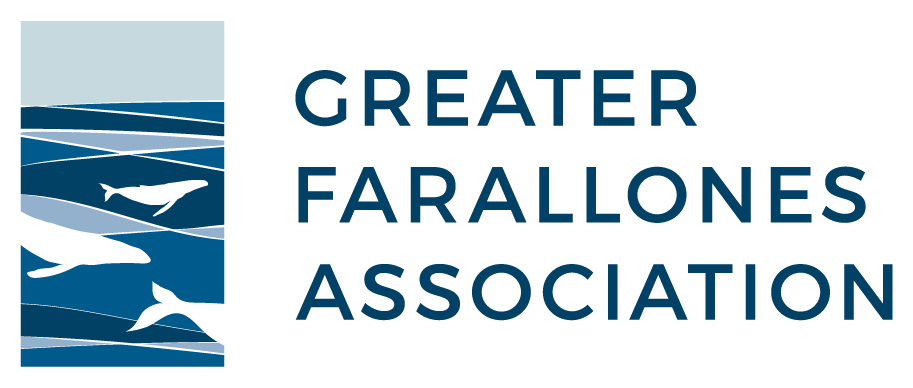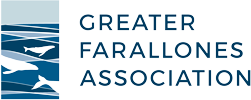Kelp Recovery Working Group
The Kelp Recovery Working Group, convened by the Greater Farallones National Marine Sanctuary (the Sanctuary) Advisory Council (SAC), was active from 2017 through 2018. Greater Farallones Association co-chaired the working group, which was aimed at identifying the management, restoration, and research needed to increase climate resilience of bull kelp forests and the associated nearshore fisheries that rely on them.
The working group, chaired by SAC member Francesca Koe (conservation seat), brought its recommendations to the SAC in November of 2018. The SAC then forwarded its final recommendations to the Sanctuary. Following this, Greater Farallones Association created a comprehensive Bull Kelp Restoration Program and Plan, to be implemented in partnership with the Sanctuary, and various agencies, non-profits, tribes, and fisheries groups.
View the Sanctuary Advisory Council’s Kelp Recovery Recommendations
Working Group Meeting Documents
Meet the members
April 2018 Meeting Minutes
August 2018 Meeting Minutes
September 2018 Meeting Minutes
Presentations
Kelp Recovery Working Group-Project Orientation
Protecting the Bull Spore Bank-KELPRR-Catton
Salish Sea Bull Kelp Restoration-Schiltroth
State of the Science-Catton
June 6 Webinar: Kelp Monitoring Methods and Technologies
Webinar agenda, speakers
Webinar notes
Webinar recording
Important Data Sets
CDFW MarineBIOS Marine & Coastal Data Viewer
Reef Check – Global Reef Tracker
DataONE Archives (PISCO)
Kelp Canopy Shapefiles
Other Resources
Sanctuary Advisory Council website
Noyo Science Center – Help the Kelp Campaign
Citizen Kelp – portal created by The Nature Conservancy
Relevant Literature
Increasing Coupling Between NPGO and PDO Leads to Prolonged Marine Heatwaves in the Northeast Pacific (Joh and DiLorenzo, 2017; Geophysical Research Letters)
Multi-year persistence of the 2014-15 North Pacific marine heatwave (DiLorenzo and Mantua, 2016; Nature Climate Change)
Causes and Impacts of the 2014 Warm Anomaly in the NE Pacific (Bond et al., 2015; Geophysical Research Letters)
Geographical variability in the controls of giant kelp biomass dynamics (Bell et al., 2015; Journal of Biogeography)
Kelp forest habitat restoration has the potential to increase sea urchin gonad biomass (Claisse et al., 2013; Ecosphere)
Toward Ecosystem-Based Management of Marine Macroalgae – Bull Kelp (Nereocystis Luetkeana) (Springer et al., 2010; Oceanography and Marine Biology: An Annual Review)
Partners and groups involved in the Bull Kelp Recovery Working Group, Kelp Recovery Program, and Kelp Recovery Network. This list will be continually expanded as new partnerships are formed: California Department of Fish and Wildlife, Greater Farallones National Marine Sanctuary, Greater Farallones Association, The Nature Conservancy, North Coast Resource Partnership Tribal Representatives, Sherwood Valley Band of Pomo and Noyo Tribal Community, Round Valley Tribes, Coyote Valley Band of Pomo, Manchester/Point Arena Tribe, Potter Valley Tribe, Kashia Tribe, Inter-Tribal Sinkyone Council, Noyo Center for Marine Science, Urchinomics, Surfrider Foundation, Watermen’s Alliance, Get Inspired Inc, Reef Check California, California Sea Urchin Commission, University of California Bodega Marine Lab, Lift Economy, Nutiva, North Coast Brewing, Fortunate Farm, Humboldt State University, University of Santa Cruz, San Diego State University Coastal and Marine Institute, Farallon Institute, Waves of Compassion Association

